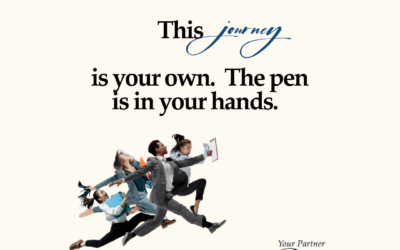Coaching can be tough and challenge many to check their own emotions. If I see your sad face, I may first resonate with it and feel sadness myself (that’s the work of strictly congruent mirror neurons). Next, I may feel the desire to comfort you rise up in my body automatically (that’s a gift from the broadly congruent ones). And deep within, below conscious awareness, my inner world will be able to distinguish between your sadness and my own so that I’m not overwhelmed (thanks to a group called “inhibitory”).
If someone has a lot of unprocessed sorrow, they may not be able to get to the full experience of empathy, but instead be stopped at the stage where their feelings echo the other persons and they’ll both be sad together. In any case, there is a kind of interpersonal oneness available to us so that we aren’t isolated from each other.
In addition to being neural bridges that allow us to respond to one another from a felt sense of each other’s self, it is possible that this resonance circuitry brings people outside us into our inner world in a most intimate way. It appears that after the initial arrival of information from our relationships stimulates our mirror neurons, other circuits pick up the intention, bodily sensations, and emotions of the other person and encode them, intertwined with our own felt sense experience at that moment. At the same time, our sensory experience of the person is being added — how this person sounds, looks, smells, and smiles. In this way, through mutual internalization, we become inner communities for one another.
We can take on other people’s energy. When was the last time you had a conversation with someone that stayed with you for hours?
As coaches, committed to the profession, we care about your success and we want you to win. At times, we even want to do the work for you. However, that is not an option. This journey is your own, the pen is in your hand.
What do I mean by that?
When in conversation with a client, they discuss what possibilities exist for them and create their plan of action. I need to not make suggestions.
Picture this, I have a pen in my hand and I am beginning a coaching call with someone. Towards the end of the call I ask the question, “what steps are you going to take to make this happen”, I am passing the pen to them. It needs to stay in their hand. If I start making suggestions or re-capping what was most important to them about the conversation, I take the pen back.
I recently spoke with a coach who was very emotional about a client. She was sad for her client who was having financial troubles and wanted to SAVE her. She even considered paying her rent, taking her pen. I gently guided her towards the realization that as a coach, we need to be responsible for the process to support people from their current reality to achieve their goals. We cannot be responsible for the results. The work has to be done by the person who created the goals. A great book that I recommended to my peer coach is The Four Agreements: A Practical Guide to Personal Freedom by Don Miguel Ruiz. The second agreement would serve as a good reminder.
This sense of our interconnectedness through resonance brings us full circle to the beginning of our explorations with each new conversation. We become mindful of our ability to own the process and environment for change to occur. To support and not save those we coach. The pen is in their hand, they own the story that gets written.
Offering you a free 5 video series on Coaching Myths & Tips, I invite you to sign up and increase your awareness.
How would you like to maximize your personal and business performance and increase your coaching skills? Jennifer Jimbere is the President of Jimbere Coaching and Consulting.
Unleash your strengths, email jennifer@jimberecoachingandconsulting.com.
Maintain momentum and make it a great day!
Image credit and artist: LA artist and old friend Jennifer Verge
Inspired by: My email sign off:)





